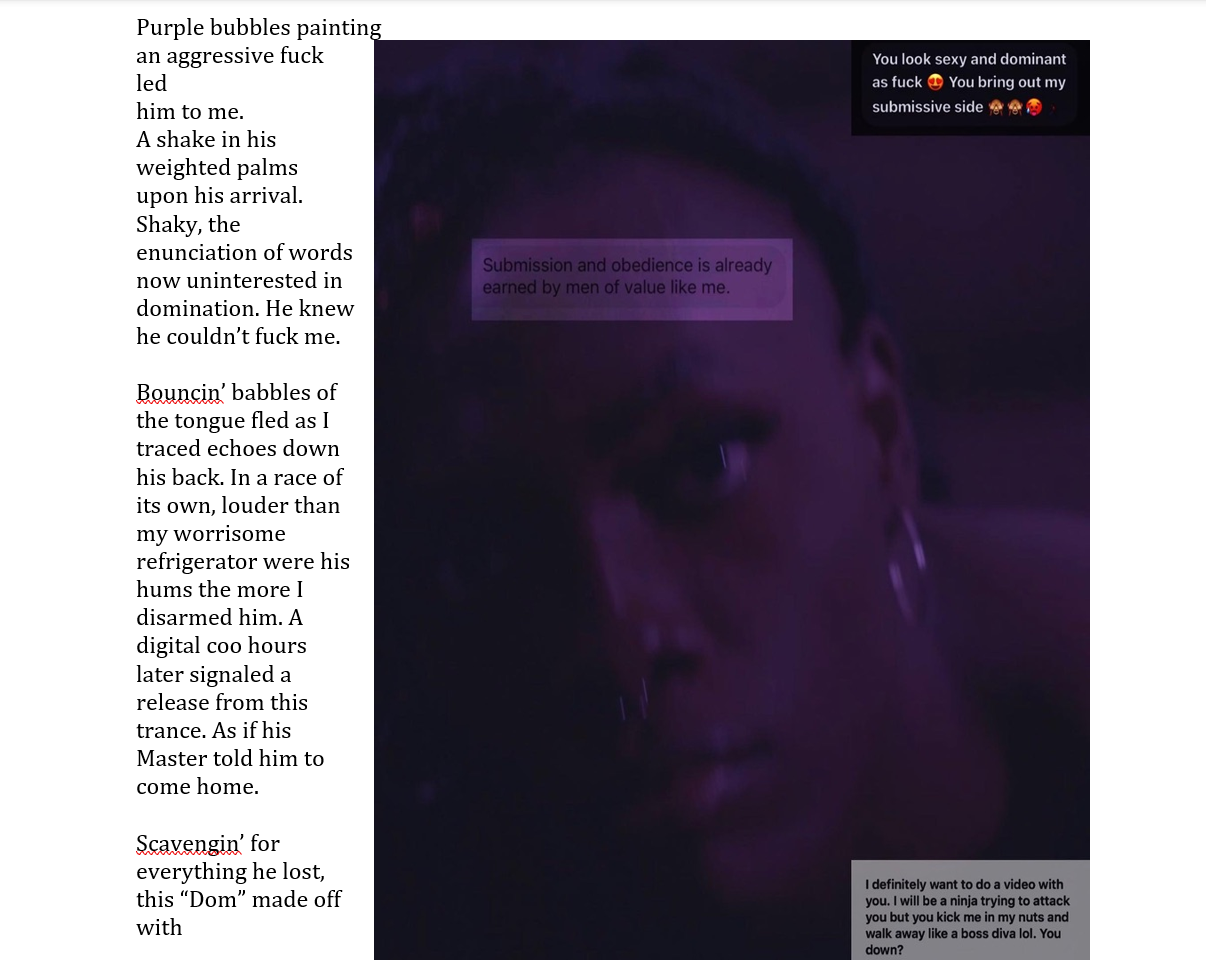On March 16, 2023, Remains // An Archive (RAA) hosted its first public event, Footnotes: A Conversation Lost and Found in the Fires. The event was a celebration of Puerto Rican photographer and arts educator Christopher López’s current work on the Hoboken arsons and latest exhibit at the Hoboken Historical Museum titled The Fires: Hoboken 1978-1982. This conversation also included an important guest, Janet Ayala, a survivor of the Hoboken fires, whose stories and portrait were featured in López’s exhibit. The exhibit opened in late January, 2023, and will be on display through the summer of 2023. The closing date has not been announced.
Read MoreUsing the extended metaphor of [endarkened] plant care to juxtapose carceral, capitalistic academic institutions, this piece is a love letter to my partner that asks how the embodied stresses of “work” manifest in intimate interpersonal relationships. I ask, what does a relationship look like when both (or multiple) individuals are strained by the pressures of production?
Read MoreMary “May” Katherine had thus far led as charmed of a life as possible for someone in her shoes. She had all the love, admiration, adoration, and respect of not only Mother, Fred, Claude, Dorothy, Lester Junior, and all her friends, but also of people she just met in her adventures. It was 1944. She was seventeen years old, three years out of high school, six months back from her sojourn in California, and ready to start the next adventure of life.
Read MoreEven now, words escape me and remind me that there is more than a singular way to express gratitude. These paintings represent my offering, from poet to poet, to convey the generosity I have received through your work. Poetry was my first creative love language, and the heartbeat of your text pulsates within my being.
Read MoreAs I contend with antiblackness and transmisogynior in this exercising of the erotic, the vignettes and images featured consider what happened when sexual objectification and being understood as with(out) gender, sexuality, and humanity (i.e., the pornographic) felt exciting, worrisome, and honest.
Read MoreIn 1988, Shell assumed that confidentiality could control the truth about climate catastrophe and thus erase the deathly repetitions that rupture our present. What if erasure, as a poetic practice, could de-form the report to reveal another narrative from that which is concealed within it? Christina Sharpe argues that redaction (and annotation) is a way of “seeing and reading otherwise; toward reading and seeing something in excess of what is caught in the frame” (Sharpe 2016, 117).
Read More“I like to say black people do this thing I like to call glamouring, we glamour…What black people tend to do is we tend to mesmerize the person who’s acting on us. A lot of what we do, everything from shucking and jiving, to Michael Jackson moonwalking, it’s all glamouring.”
Read MoreThere is much to be said about the power of invitation. Of feeling wanted. There is more to bond over than shared violence. A warm hug (the kind where hands interlock across bodies), a smile, and a home-cooked meal—above all, an opened door—all feel better.
Read MoreI look into the eyes of my grandparents, nimosôm, my grandfather, Christopher and nohkôm, my grandmother, Ginger, who are still here with me today, and I imagine a world, where they were given everything, they deserved. I have never asked them what they went through. Instead, I stand in front of university classes as a professor sharing the stories of others that have come from the Truth and Reconciliation Commission’s 2008 report, but one story is given from my lived experience.
Read MoreCongratulations to Dr. Jessica Marie Johnson!
Read MoreThe excerpt below is part of a longer work created through a text and collage exchange between Writer/Poet Jenise Miller and Mixed Media Artist Giana De Dier. It is inspired by family memory and the above Museo Afroantillano de Panamá installation.
Read MoreVíctor Hernández Cruz
Read MoreTaller Electric Marronage, Keywords for Black Louisiana, The Space for Creative Black Imagination, and the JHU Center for Africana Studies hosted a conversation on doing history, art, and storytelling as the world burns down. #BlackNewOrleans (VIDEO)
Read MoreWe conjure our god/desses with flowers, food and desire. Together, our pleasure is a song keeping alive our humanity. I see you. In your naked fullness, worshipping your strength and fragility. The intimacy we share is a reminder of our ancestors’ stories and their dreams in fruition.
Read MoreOn Thursday May 13th at 3pm ET, the Electric Marronage hosted a conversation on the concept and practice of Solidarity, Abolition, and Relations Across Difference in and across Black, Indigenous, Pacific, Caribbean, and Asian contexts. We were honored to engage in a discussion with five activists, writers, and scholars:
Read MoreRecently, my brother posted a picture of my great grandmother on my father’s side. It was the first time I’d seen her. I could not stop staring into her eyes, trying to find myself in hers, trying to decipher her stoic expression, a thin smile on her lips. My paternal grandmother looked very much like her.
Read MoreAs of late, I have been thinking deeply about death. I have been thinking about the various time fracturing technologies employed by the racial capitalist patriarchal and colonial order which renders us as “out of time,” as marked for death. I am not trying to reify a Hegelian notion of racialized peoples as atemporal or supposedly stuck in time, but rather I am thinking about the ways in which the racial capitalist patriarchal and colonial orders fracture our “coherent relationship with Time through physical and metaphysical coercion” (Sawyer 2018, vii).
Read More





![Glamouring As a Way [Not] to Live](https://images.squarespace-cdn.com/content/v1/5a43ff57ccc5c504cd257d41/1668097561150-J8PN3X643AYIDOWSS6FO/my+mothers2.jpg)









![Mâmawinew [She/He Assembles Them]: A Curation of Wahkomâkanak kiskeyitamowi, Ancestral Knowledge](https://images.squarespace-cdn.com/content/v1/5a43ff57ccc5c504cd257d41/1633656840451-HUQ1YCFBKOHDBBN2YZHH/unsplash-image-w95BkIgqkqY.jpg)


